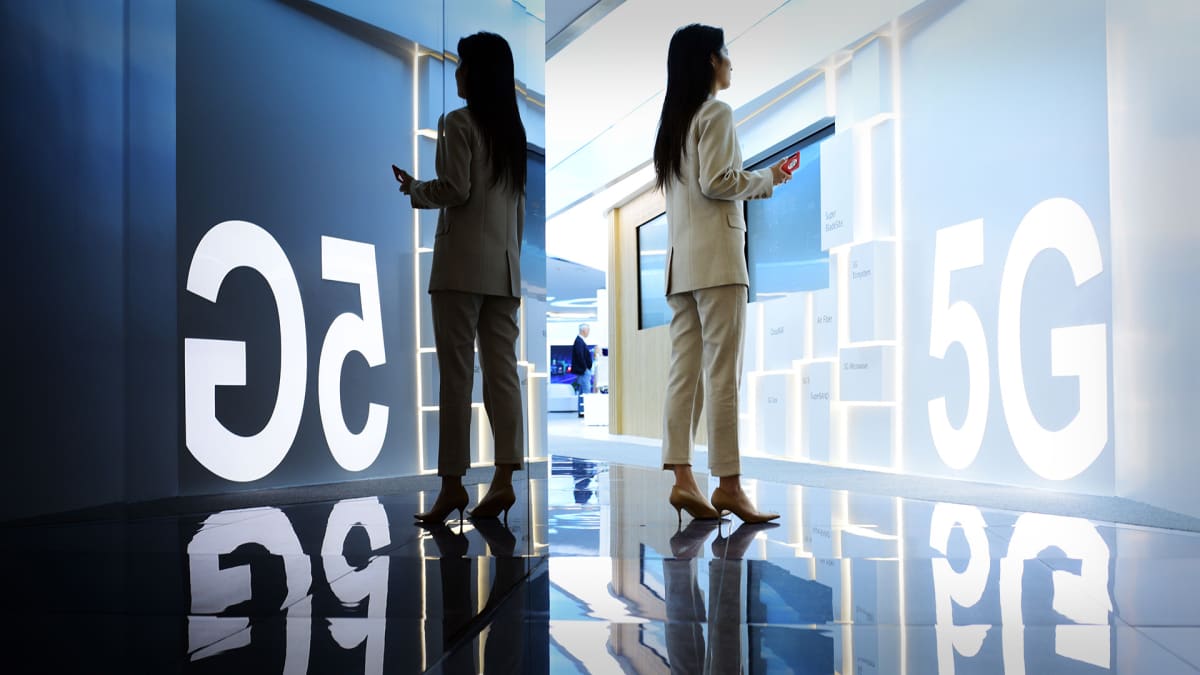
The year 2022 was supposed to be the year of 5G.
After years of hype, and conspiracy theories, the switch over from 4G to a 5G (or fifth generation) mobile network came and went...with a thud.
While the first 5G network was launched in 2019, a May 2022 survey by Deloitte suggests that consumers appeared "indifferent" to the new network with 73% of people not proactively seeking to make a switch.
Industry advocates note that the adoption rate for 5G has doubled every year since the end of 2018, totaling 922 million connections by the end of third quarter 2022, according to data from analyst and consultancy firm Omdia.
"5G continues to advance significantly around the world. The foundation of this new era of innovation is given by spectrum, standards and a growing ecosystem of key technologies that are being adopted by operators, suppliers and users alike," Chris Pearson, president of 5G Americas told TVyVideo.
But according to Verizon Communications (VZ), the U.S. top telecom company, the switch to 5G isn't happening fast enough, and its decision to shutter its 3G network last year is hurting its bottom line.
Verizon's 5G Problem
Verizon was able to top analysts' fourth-quarter estimates when it released its results this week, but its weak financial guidance for 2023 sent investors running for the hills.
When asked where Verizon has seen shortfalls in its business, leading to its conservative guidance, CFO Matt Ellis identified 5G adoption as an issue.
"A couple of areas where we are behind versus our expectation at that point in time... 5G private networks, you're talking about the technology adoption there on a new technology," Ellis said on the earnings call.
"That adoption curve, [is] a little slower than maybe we would like."
The other edge of the technological sword was Verizon's decision to mothball its 3G network as part of the transition to 5G at the end of 2022.
The company says that 909,000 wireless retail postpaid connections, including 392,000 wireless postpaid phone connections and 237,000 retail prepaid connections, were removed from its customer base due to the shutdown.
Verizon's 3G shutdown resulted in its retail phone customer base shrinking by 1.3% year over year, analysts at MoffettNathanson said, according to LightReading.
Slow Adoption Doesn't Mean No Adoption
5G networks are now delivered by at least 209 operators in 83 countries, according to Deloitte.
While Deloitte's survey suggests that there is consumer indifference towards 5G, the firm says that indifference isn't the same as consumers rejecting the new technology.
The firm points out that 4G already enables consumers to "stream, post, play and share all the content they want, and so they might rightly ask, what more can a new network technology offer?"
Deloitte still expects the majority of consumers to adopt 5G, eventually, but there is currently little urgency to make the switch.
However, market forces (like the fact that it will become increasingly hard to find smartphones that do not support 5G) will eventually move the needle for companies like Verizon who have spent billions not only building the 5G network, but also marketing the network to a public that is, so far, mostly indifferent.
"It is likely that the majority of cellular users will be connecting to 5G networks by the end of 2023 – by which time we would also expect the first $100 5G smartphones to be on the market in some parts of the world," Deloitte said.







